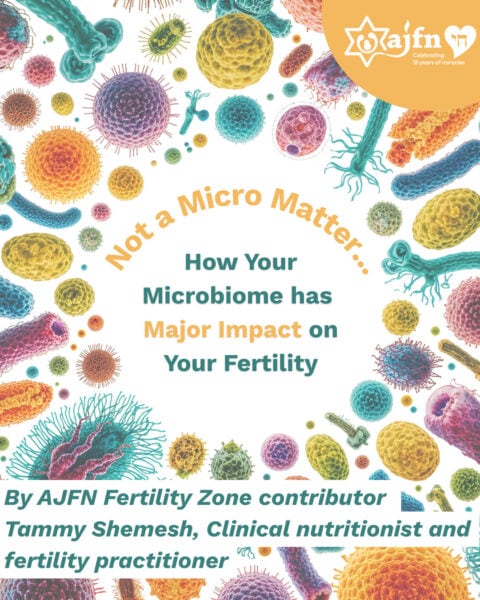Don’t offer unsolicited advice but do reach out.
Don Merritt’s biggest pet peeve was that people would tell him they understood what he was going through. Mr. Merritt and his wife struggled to conceive a child for four years. “Sometimes you can’t really imagine what that person is going through,” he said. “It is an experience unlike any other that will test your marriage. It will test everything about you as a person.”
Given the triumphant peaks and crushing lows when he was dealing with infertility, he knows it wasn’t always easy for others to provide support for him. Sometimes he would isolate himself and be unavailable as he processed his heartbreak with his wife, Tiffany. This is understandable. Studies show that patients struggling to conceive report feelings of depression, anxiety, isolation, and powerlessness.
Mr. Merritt, 44, is thankful to his friends who weathered the storm alongside him, even if it was just to be there to let him cry, talk and express his sorrow. However, he is aware that saying the wrong thing to him at the wrong time would have been tremendously disappointing and hurtful. He felt as if he was on an emotional roller coaster. At one point, he was despondent over being denied the financing for the treatments. At another, he was “gleaming with joy” when his wife was able to successfully conceive.
It can be hard to know if an infertility patient is mourning a loss or celebrating a spark of hope, which is why there’s a need to be mindful when talking to that person.
Infertility is a disease of the reproductive system, according to the World Health Organisation. It’s defined as the failure to achieve a clinical pregnancy after 12 months or more of trying to conceive, and six months if the woman is over the age of 35, according to the Department of Health and Human Services. The condition affects one in six couples and can cause serious physical, emotional and financial strain.
“It can seem like you’re the only one struggling when month after month your period arrives and everyone around you and on Facebook seems to be getting pregnant and having children without effort,” Dr. Landon Zaki, a psychologist specialising in reproductive mental health, said. “Because there isn’t really a social conversation around infertility, we lack the words to talk about it and the knowledge of how common it actually is.” This silence can compound the sense of despair and shame some may already feel.
Even if you have gone through infertility yourself (or know someone who has), no two situations are alike. What one person finds challenging can be completely different from another person. If you know someone struggling to conceive a child, here’s what you can say to show you can provide a safe space for that person to process grief.
Reach out
“There’s just so many ways that you can just be present in someone’s life and just say, ‘Hey, I’m thinking about you today.’ That’s it. That’s all you have to say to make a difference,” Dr. Desireé McCarthy-Keith, M.D., M.P.H., a reproductive endocrinologist, said.
She suggests a gentle approach with patients. We have to be sensitive and not intrude, she said, but it’s a fine line because we don’t want them to feel ignored. Ask how they’re doing, and if they say, “I’m fine,” without elaborating, then leave it alone. “It’s such a private and personal issue that you have to just tread very lightly.”
Prepare for the possibility that the couple might prefer to keep the details to themselves. Respect their space and understand that they will share updates when they’re ready.
Certain days or celebrations may be especially fraught. Baby showers, young children’s birthday parties and holidays can bring up intense feelings of loss when a person’s dream of parenthood is unfulfilled, Dr. Zaki said. Respect how patients choose to manage their feelings, even if it means that they ultimately decide to decline a party invitation in order to care for themselves, she said.
Don’t offer unsolicited advice
Just as you wouldn’t tell someone in a sinking boat to relax or to stop stressing about it, you shouldn’t say that to someone struggling to conceive. It’s not helpful and can be frustrating to hear. And this is not the time to attribute any difficulties to some grand design, the universe, or a higher power.
“Similarly, they don’t need anecdotes about how your aunt’s friend’s sister’s babysitter got pregnant eating pineapple core while relaxing on the beach,” Dr. Zaki said. “Such comments, while most likely well intentioned, imply that infertility is a simple problem that can be easily solved.” The reality is that infertility is a complex issue that can take years of treatments, heartache, and countless losses before being overcome.
Dr. Zaki also suggests to eschew saying anything that assigns blame, such as “You should try harder” or the (equally unhelpful) opposite, “You should relax more.” Also, it’s best not to air your own pregnancy complaints. This isn’t the time to grumble about how your feet swelled when you were pregnant.
Avoid reframing the issue
It’s understandable to try to look on the bright side, but this approach can irk your loved one. Statements like, “Well, at least you have a loving spouse” or “It could always be worse; be thankful you have a good job,” don’t magically make the pain and trauma of infertility disappear.
“Comments that make assumptions or imply ignorance — such as ‘You can always try IVF’ or ‘There’s always adoption’ — can also risk further alienating a person struggling with infertility,” Dr. Zaki said. Besides, you may not be aware of what avenues the person has already explored (or sensitive medical and financial information that might restrict options). These suggestions can feel like salt on an exposed wound.
People can be especially insensitive to couples undergoing secondary infertility, Dr. McCarthy-Keith said. Blurting out something like, “Well, at least you already have a baby,” is inconsiderate. “What we have to remember is that whether you have zero children or you have five, if you are having infertility — if you’re ready to be pregnant and you’re having trouble getting pregnant — that is still hurtful,” she said.
Validate their pain
According to a recent study, most infertile women don’t share their struggle with family or friends. This secrecy further increases their feelings of anguish, resulting in shame, guilt and low self-esteem. Therefore, it’s especially important to use your words to impart compassion. Chirping out positive platitudes — “You’ve got this!” or “I’m sure it’ll be fine” — is not an effective way to console somebody going through a loss, as it can feel dismissive.
Sometimes when Dr. McCarthy-Keith’s patients experience a setback, whether their IVF cycle wasn’t successful or they miscarried, she’ll say something like: “I know this is bad news. This is hurtful and I’m sorry.”
When someone in her care is sad or grappling with the process, she will tell them: “I know this is rough. I know this hurts and I’m with you.” It doesn’t take a lot of words to let someone know you’re a source of comfort, she said. Just say: “I know you’re hurting; I’m hurting with you.”
Anna Goldfarb writes about relationships, careers and pop psychology. She’s the author of the humour memoir, “Clearly, I Didn’t Think This Through” and lives in Philadelphia, USA.
By Anna Goldfarb
Source: The New York Times, April 17, 2020 – https://www.nytimes.com/2020/04/17/parenting/support-friend-infertility.html





